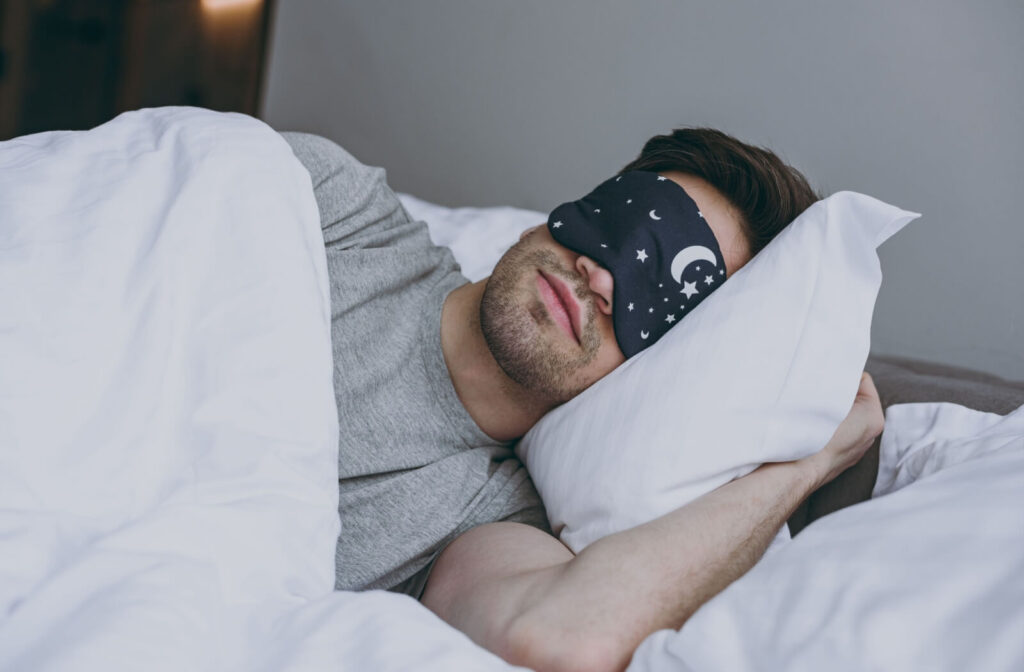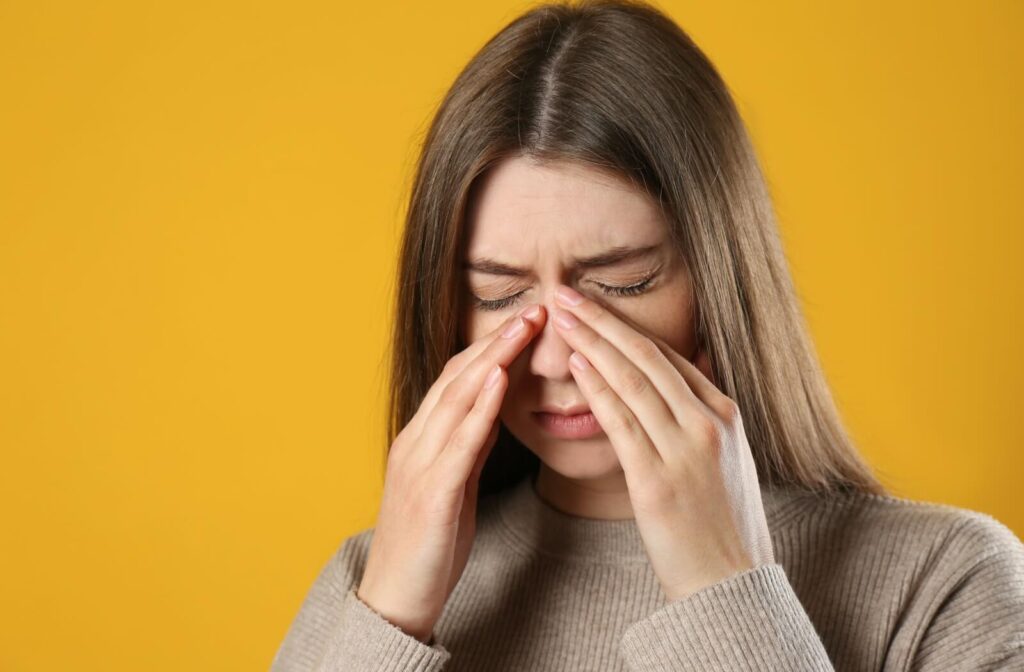Waking up in the morning with dry, irritated eyes can be an uncomfortable and frustrating experience. If this sounds familiar, you’re not alone. Dry eyes in the morning are a common problem that affects millions of people, but understanding why it happens and how to manage it can go a long way in bringing relief.
We’ll explore the common causes of morning dry eyes like environmental factors and health conditions, effective at-home solutions, and when you should consider seeking professional care. Let’s prioritize your eye health and make mornings more comfortable.
Common Causes of Morning Dry Eyes
Dry eyes when you wake up can result from various factors, ranging from your sleeping environment to underlying health conditions. Here are the most common causes:
Environmental Factors
Dry bedroom environment
Sleeping in a room with low humidity can exacerbate eye dryness. Without adequate moisture in the air, your eyes may struggle to retain hydration overnight.
Airflow from fans or air conditioning
Constant airflow, like that from ceiling fans or air conditioning units, can speed up the evaporation of the tear film, leaving your eyes dry and irritated in the morning.
Allergies
Seasonal or environmental allergies, such as reactions to pollen, dust, or pet dander, can lead to inflammation and dryness in the eyes while you sleep.
Sleep-Related Issues
Lagophthalmos (incomplete eyelid closure)
Some people sleep with their eyelids slightly open, a condition called lagophthalmos. This can expose the surfaces of the eyes to irritants and dryness throughout the night, causing discomfort upon waking.
Sleep apnea & related disorders
Conditions like sleep apnea not only affect the quality of your sleep but can also lead to eye strain and dryness due to reduced oxygen levels in the blood.
Health Conditions
Medications
Certain medications, such as antihistamines or antidepressants, can have side effects that contribute to dry eyes.
Underlying eye conditions
Eye disorders like blepharitis (eyelid inflammation) and Sjögren’s syndrome (which affects moisture-producing glands) are known culprits behind persistent eye dryness.
Lifestyle Factors
Screen time before bed
Prolonged screen use at night can strain your eyes, contributing to dryness and discomfort.
Contact lens usage
Sleeping in contact lenses or wearing them for too long can exacerbate dryness and irritation.
Dehydration
Not drinking enough water throughout the day can reduce tear production, leading to insufficient eye moisture.
Eye makeup
Failing to remove makeup before bed can irritate your eyes and worsen dryness.
At-Home Solutions for Morning Dry Eyes

Create Photo Editor and Graphic Design Maker | Shutterstock
The good news? There are plenty of steps you can take to ease dry eye symptoms from the comfort of home:
Improve Your Sleeping Environment
- Use a humidifier to add moisture to the air in your bedroom, especially if you sleep with air conditioning or a fan.
- Redirect the airflow of fans or vents so they don’t blow directly onto your face as you sleep.
Upgrade Your Sleep Routine
- Try sleep masks designed for dry eye relief. These help keep your eyes closed and prevent light and airflow from causing irritation.
- Consider products to assist with eyelid closure if you struggle with lagophthalmos.
Practice Good Eyelid Hygiene
- Keep your eyelids clean with a gentle cleanser like diluted baby shampoo or an eyelid scrub. Regular cleaning can prevent inflammation and irritation.
Keep Your Eyes Hydrated
- Use preservative-free artificial tears to refresh and hydrate your eyes, especially first thing in the morning.
- For severe dryness, apply a preservative-free ophthalmic ointment before bed for long-lasting relief during sleep.
Warm Compresses
- Apply a warm compress to your eyes to stimulate tear production and provide soothing relief. Simply soak a clean cloth in warm water, wring it out, and place it over your closed eyes for a few minutes.
Minimize Contact Lens Use
- Give your eyes a break from contact lenses, especially in the hours leading up to bedtime. Whenever possible, switch to glasses.
Stay Hydrated
- Make a conscious effort to drink plenty of water throughout the day. Proper hydration can make a noticeable difference in your tear production.
When to Seek Professional Care for Dry Eyes
If you’ve tried the at-home treatments above but still wake up with persistent dry eye symptoms, it may be time to consult an optometrist. Chronic dry eye not only impacts your comfort but can lead to more serious eye health issues if left untreated.
At Visual Edge Optometric Group, our dedicated team provides personalized care to help alleviate dry eye symptoms and improve your overall eye health. We’ll identify the underlying cause of your dry eyes and recommend effective treatment options tailored to your needs.
Taking the First Step Toward Comfort
Waking up with dry eyes doesn’t have to be a daily struggle. By understanding the root causes and practicing healthy eye habits, you can significantly improve your comfort and start your mornings off right.
If at-home remedies aren’t enough, the caring professionals at Visual Edge Optometric Group are here to help. Schedule an appointment with us today, and take the first step toward clear, irritation-free mornings. Your comfort and eye health come first with us.

